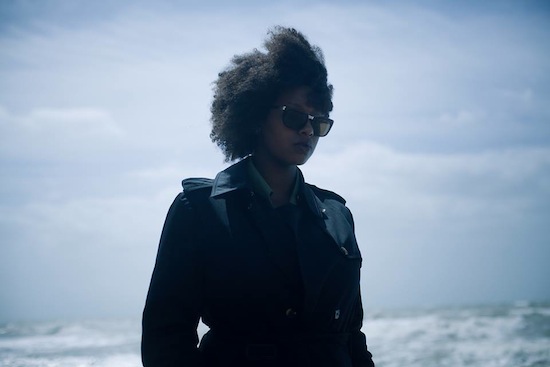On Mirel Wagner’s new release, When The Cellar Children See The Light Of Day, the Ethiopian-born, Finnish-raised musician continues to spin cobweb-covered folk music, as delightful as it is eerie. Most tracks simply feature Wagner’s guitar and her chameleon of a voice, which has the ability to soothe with a velvety softness or raise hair on listeners’ necks when she invokes a creepy timbre from somewhere other. This is an album of beautiful lullabies for the undead. Before she plays two UK dates this month – St. Pancras Old Church in London on October 23 and Bristol’s Simple Things festival in October 25 – we caught up with Wagner to discuss the album.
Congratulations on your new record! I didn’t know I was waiting for a record like that until I heard it. I read that you like to keep things as simple as possible, and I know that recording can get complicated. How did you maintain simplicity when you were making the album?
Mirel Wagner: It was actually quite easy because the songs I wrote for the album were songs that didn’t need anything else. They didn’t need that much stuff in there. I didn’t have to work on it. It just happened.
I also heard that people compare you to Leonard Cohen. Why do you think that is?
MW: I don’t know. I’m a huge fan of Leonard Cohen, so I like the compliment and I’m very flattered. Maybe it’s the singer-songwriter thing.
You also mentioned Nick Cave in the same interview. As a fellow Nick Cave fan, do you have a favourite album or song of his?
MW: Not really. Not a specific song. What I do maybe love above all about Nick Cave is how he’s created this universe, this world, where there are all these characters and songs and themes. It’s very unique, and I appreciate it. It’s very hard to say that I have a specific favourite; I just actually love everything that he does.
I know also that you are a fan of old blues songs and murder ballads. When I think about that genre, it seems like most of them have been performed by men, historically. Do you feel like women’s voices in those genres have been under-represented?
MW: I don’t know. There’s a lot of women in blues music, lots of strong women and that sort of stuff. It’s not the first thing that comes to mind when you think about blues. There were a lot of powerful blues guitar players in the olden times that were women. It’s just that when you think about blues, you have this one image in your mind.
I read that you used to write horror stories when you were much younger.
MW: Yes, I read horror stories a lot, and I wrote horror stories. In school, we wrote these stories and we could read them in front of the class. I would read my scary stories. Now I’m telling way too much.
I feel like your album is very original, given the other music that is available right now. Is there any music you think somebody should be making now that’s not being made?
MW: I think all kinds of music are being made. No one hears them. There’s so much emphasis on a certain kind of music. It’s difficult to find music nowadays. You have to make the effort to find it.
For you, is it a spiritual process at all to make music?
MW: In some ways, yes, but in some ways, not. It’s also an exercise. It’s also a compulsion, a desire. It’s a lot of things. Most of all, I do like it very much. It’s not like I’m in pain. I like writing songs and telling stories.
When The Cellar Children See The Light Of Day is out now via Sub Pop


